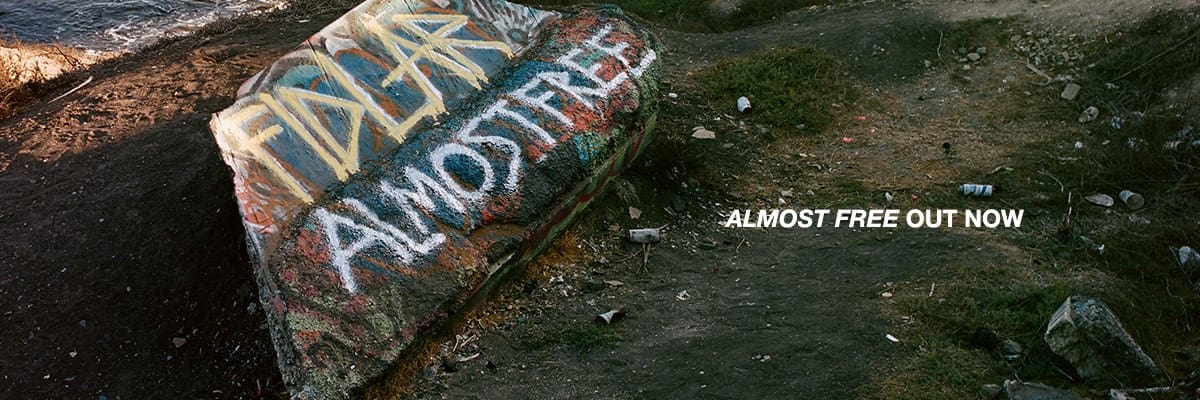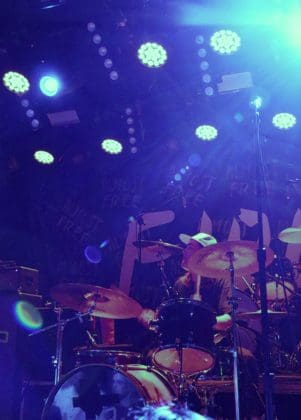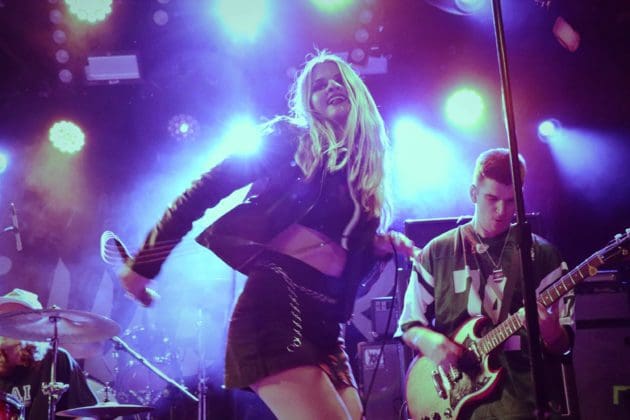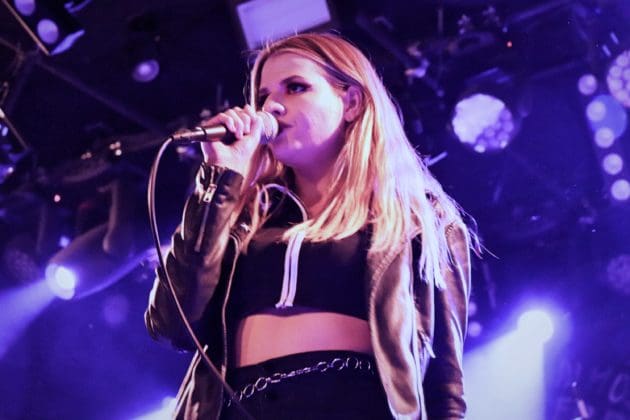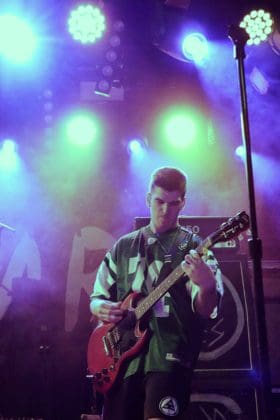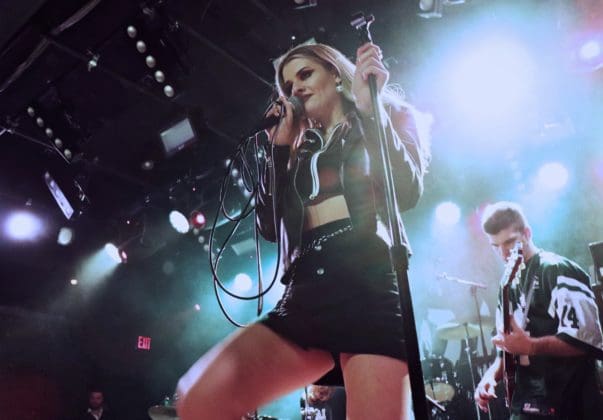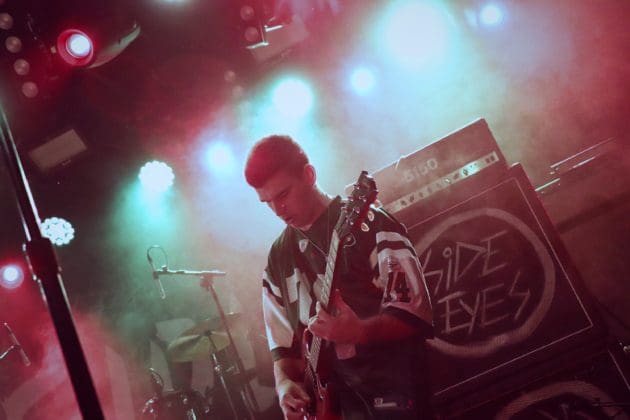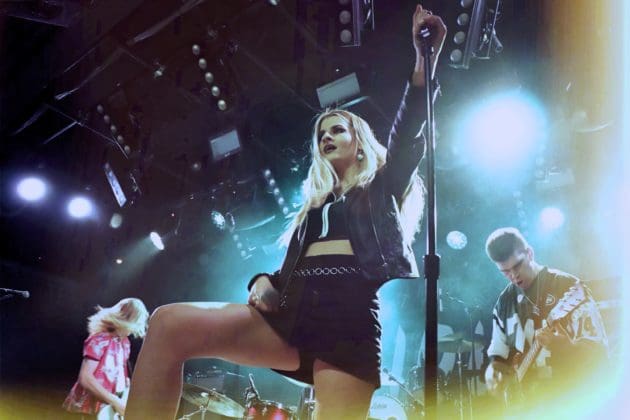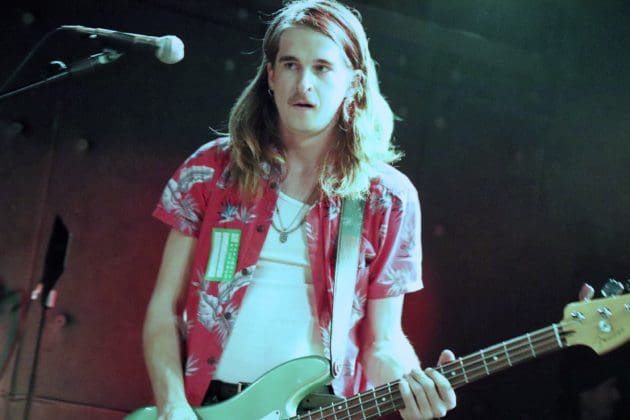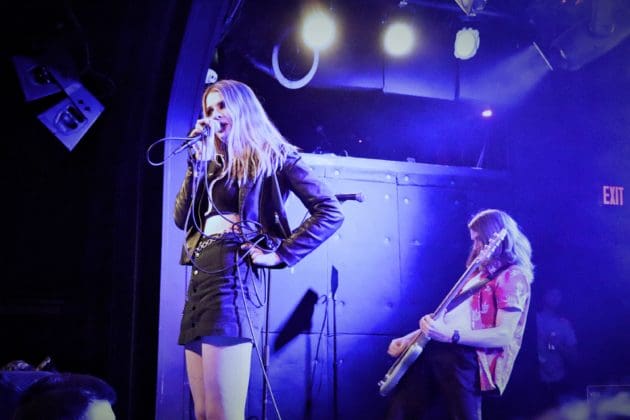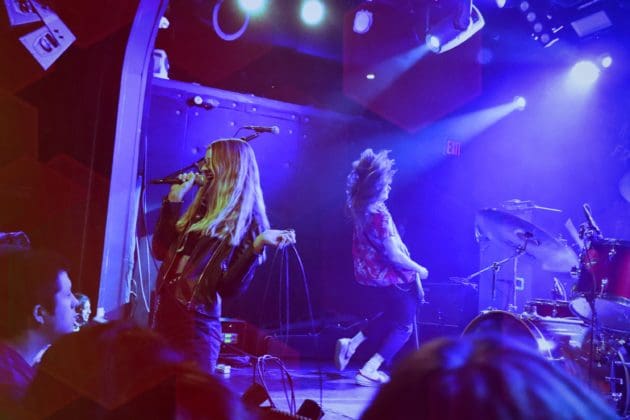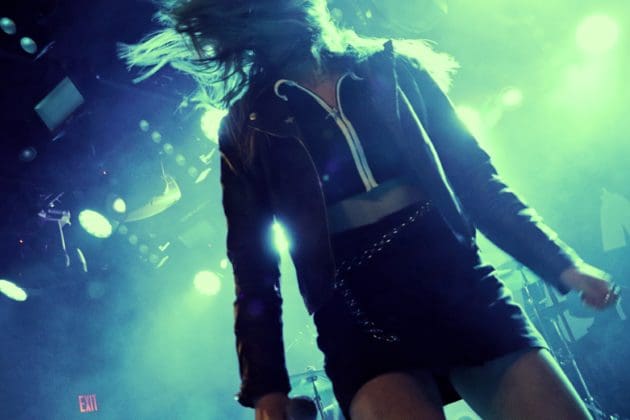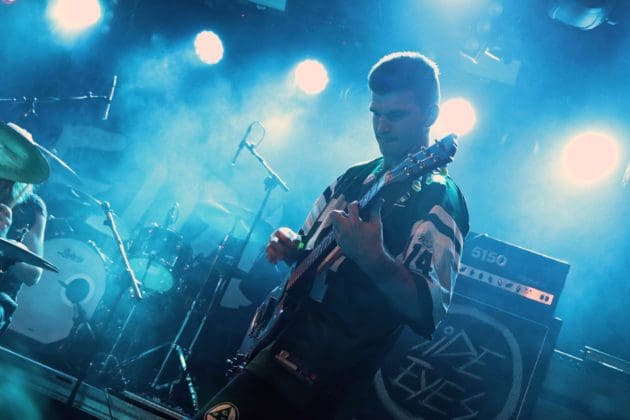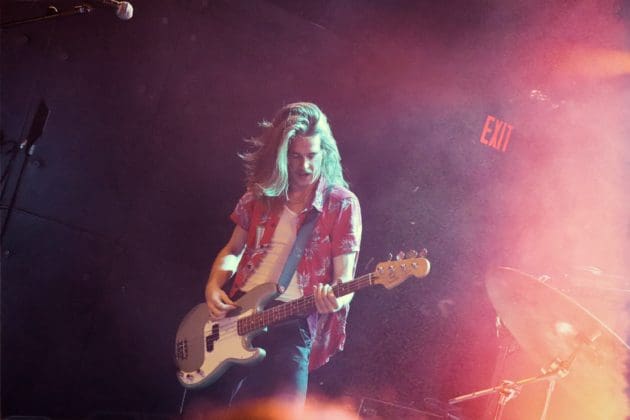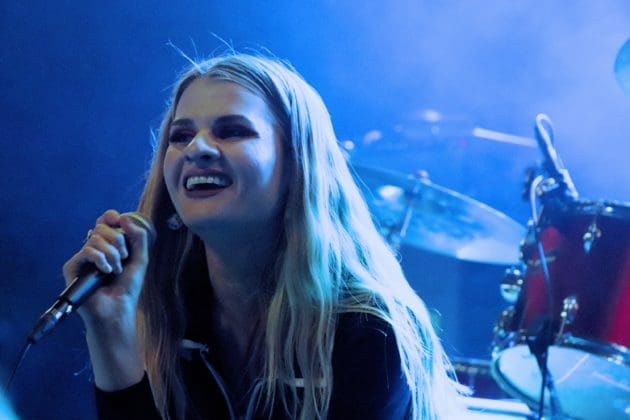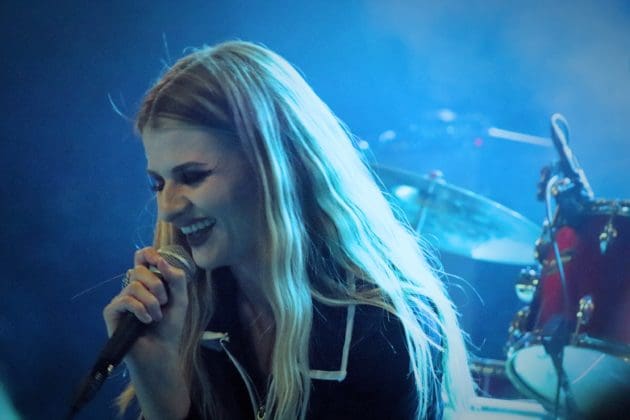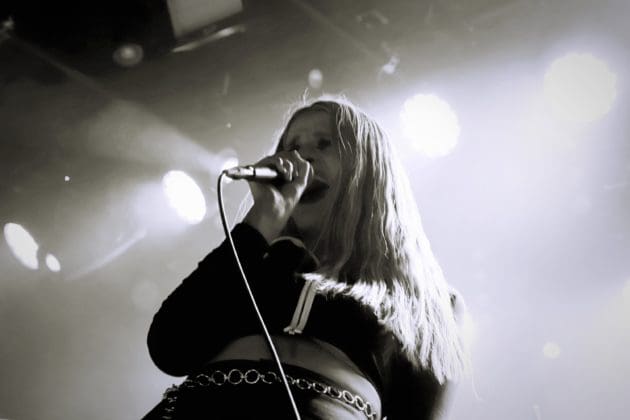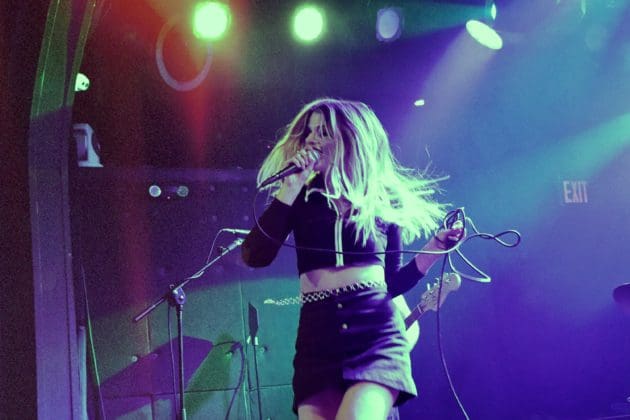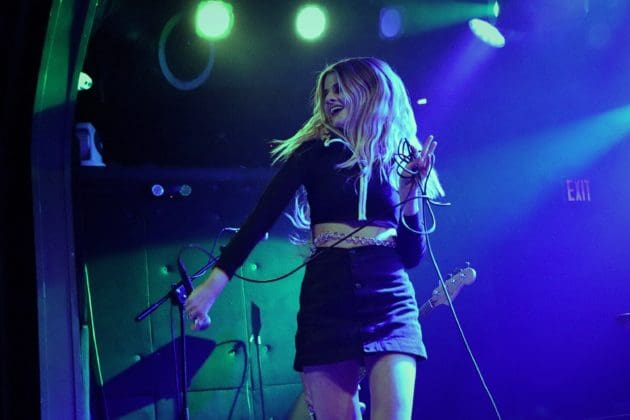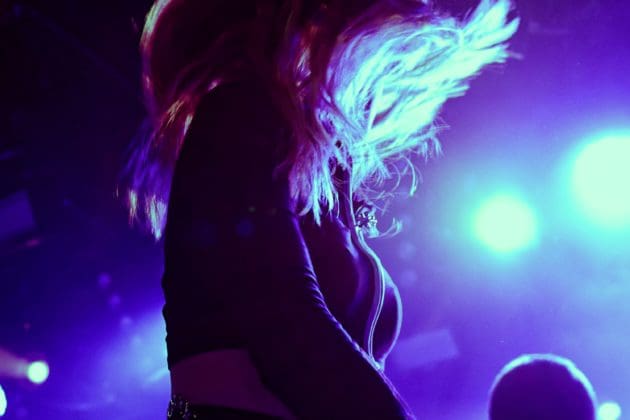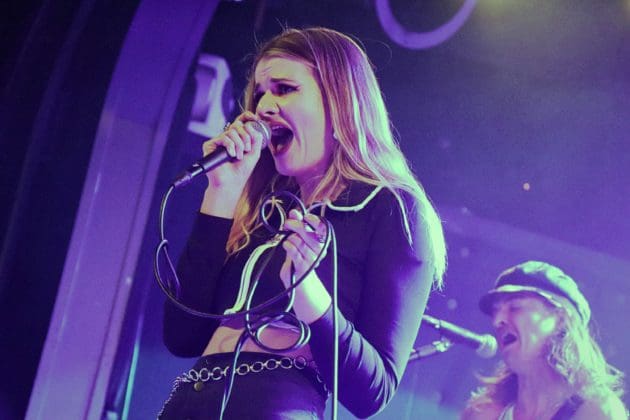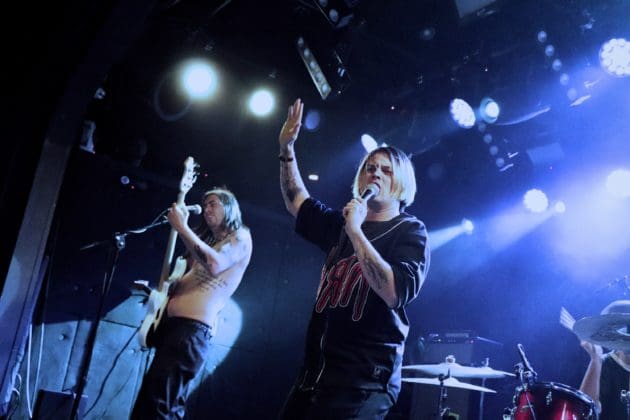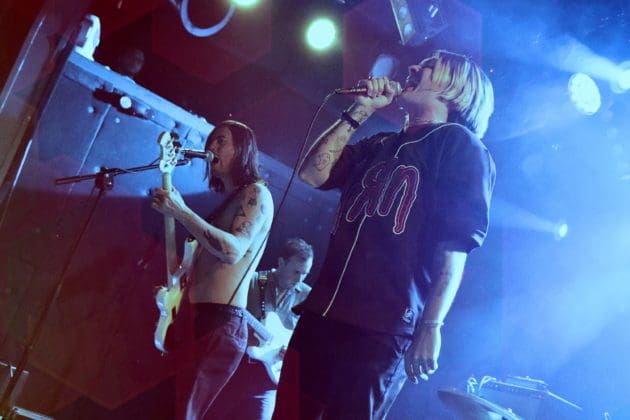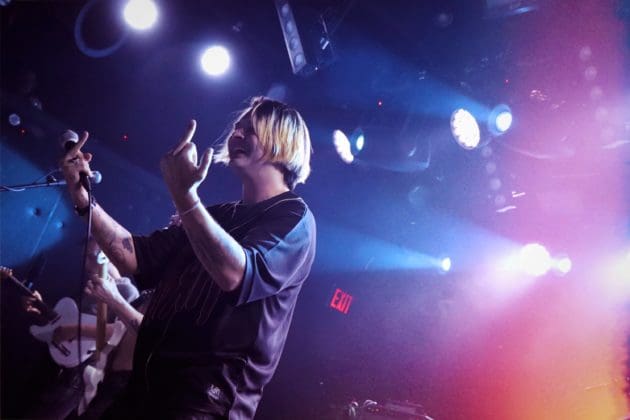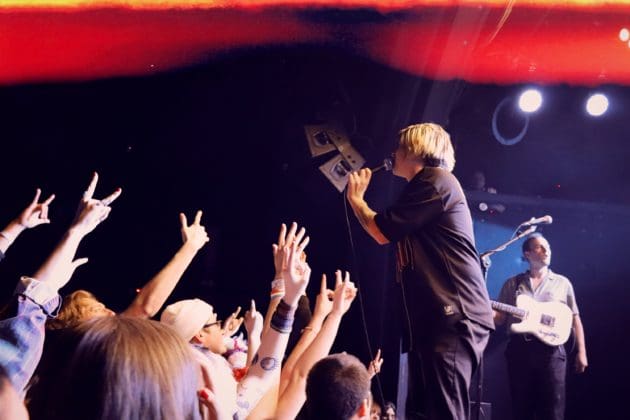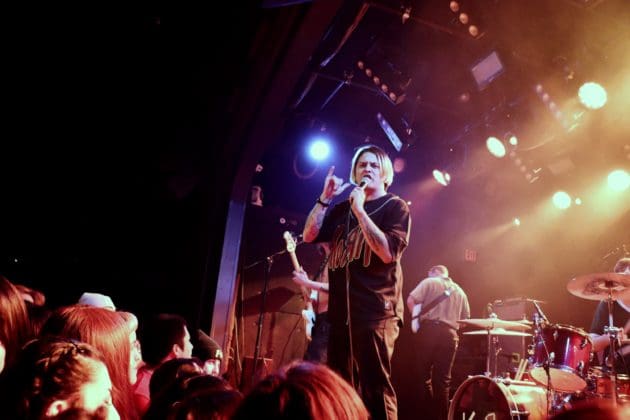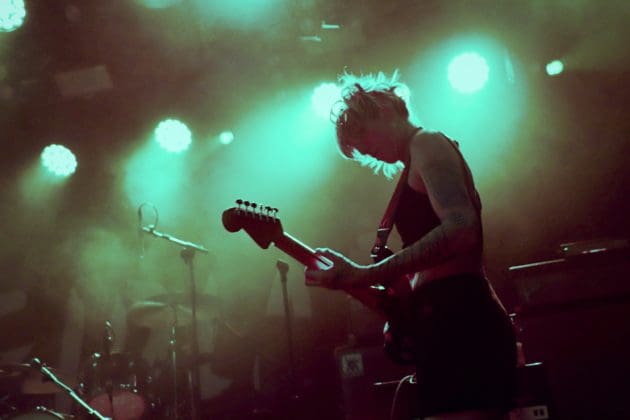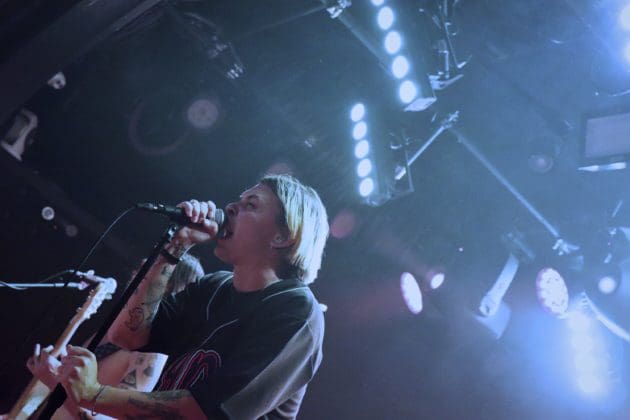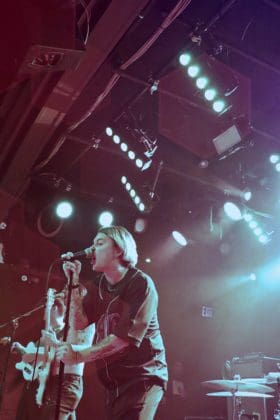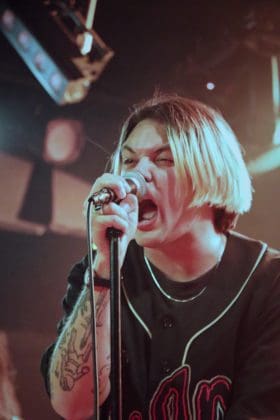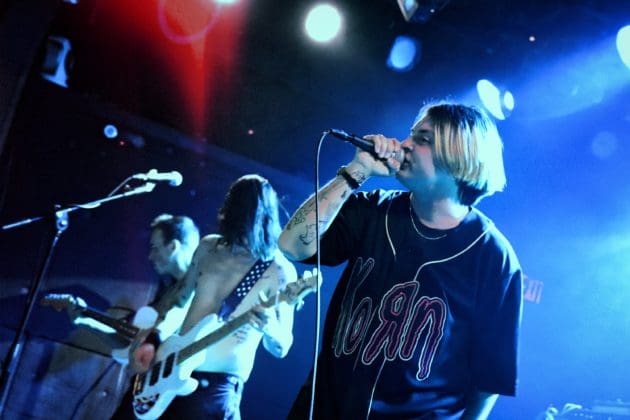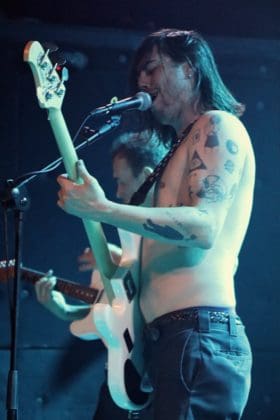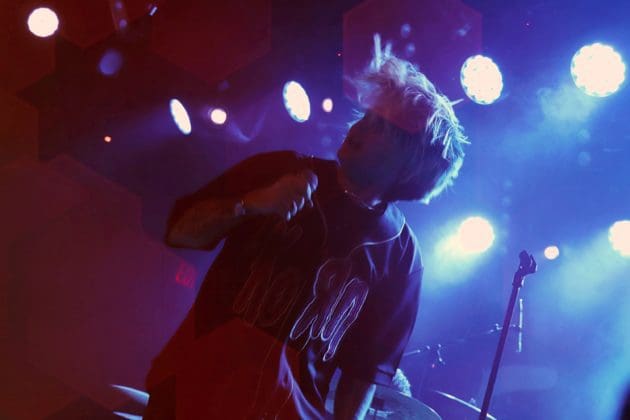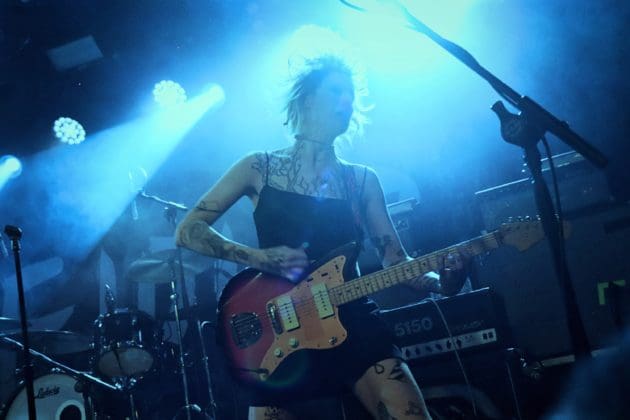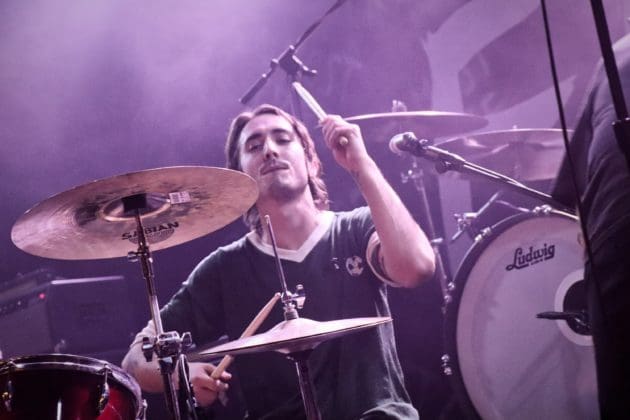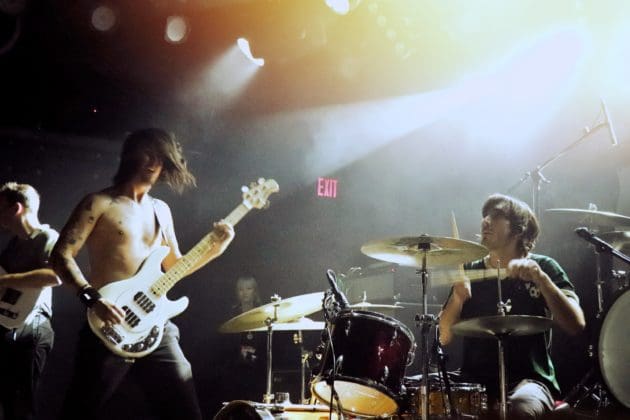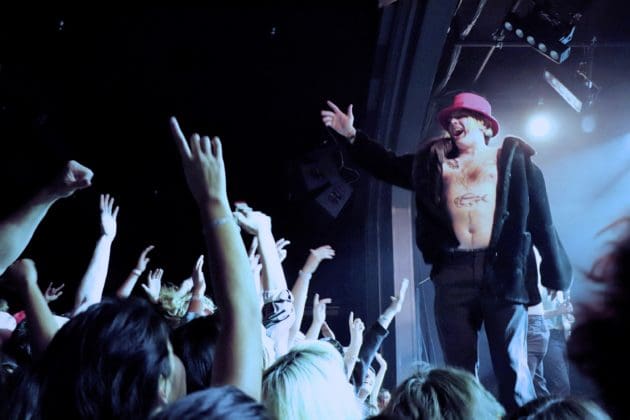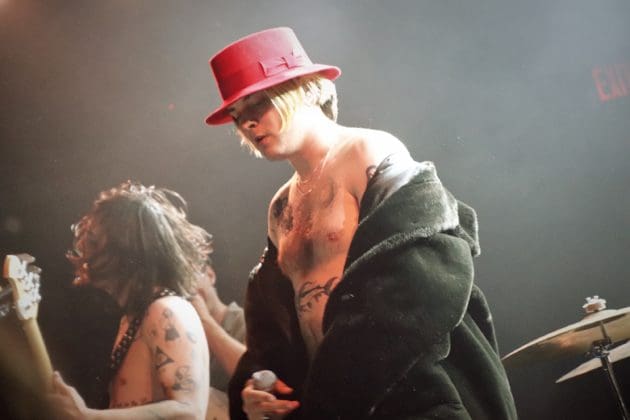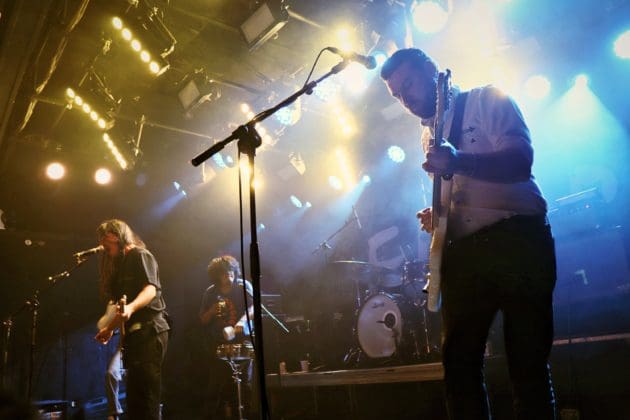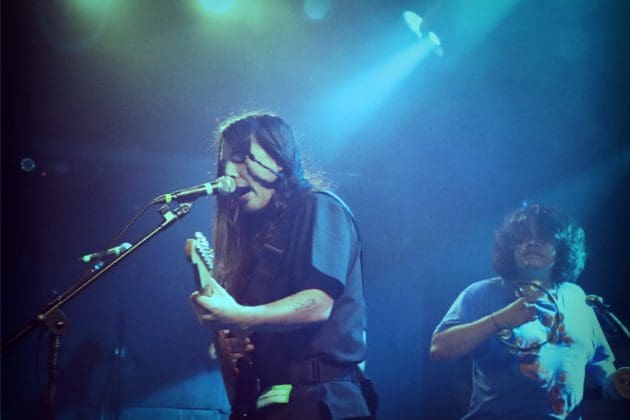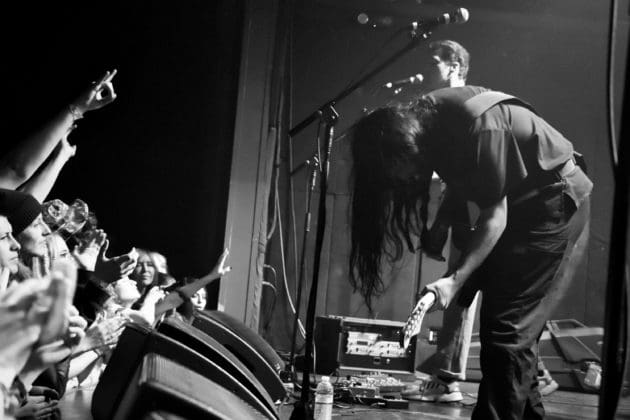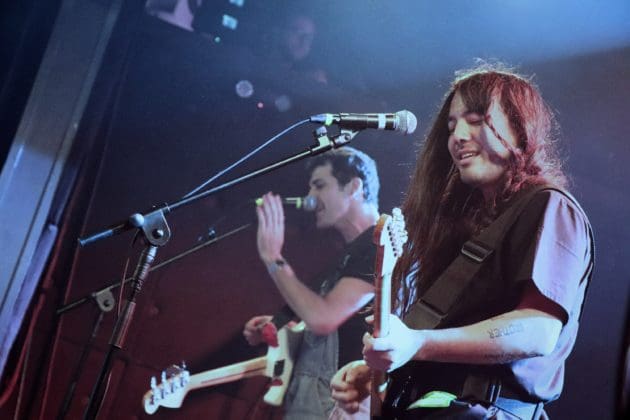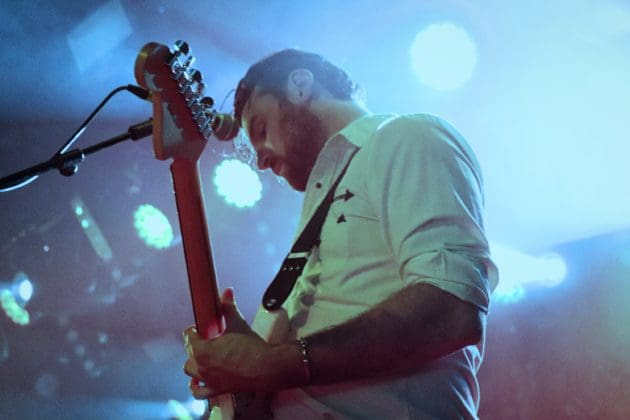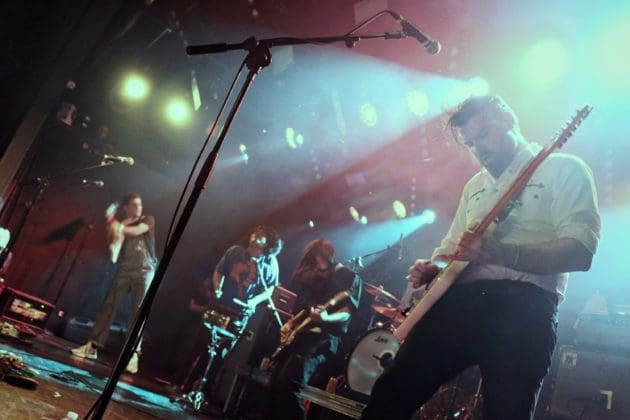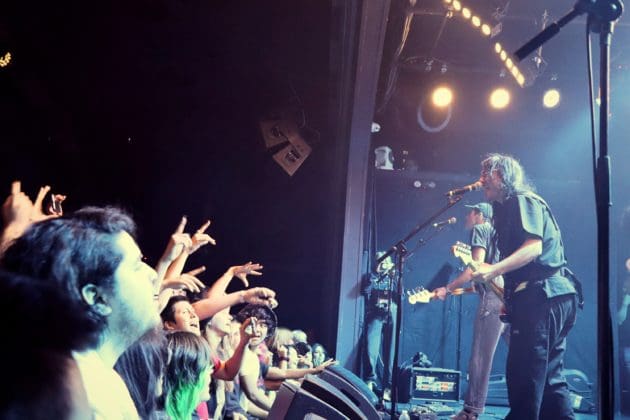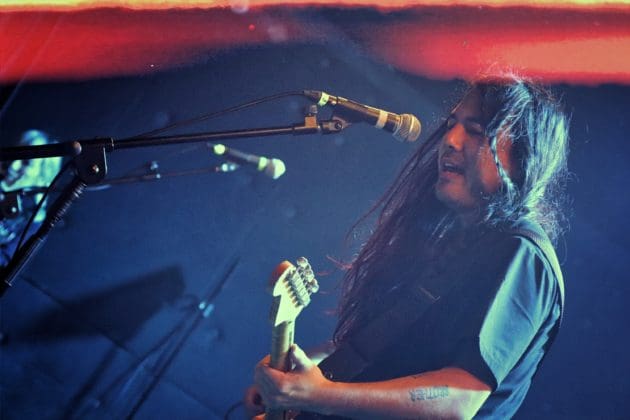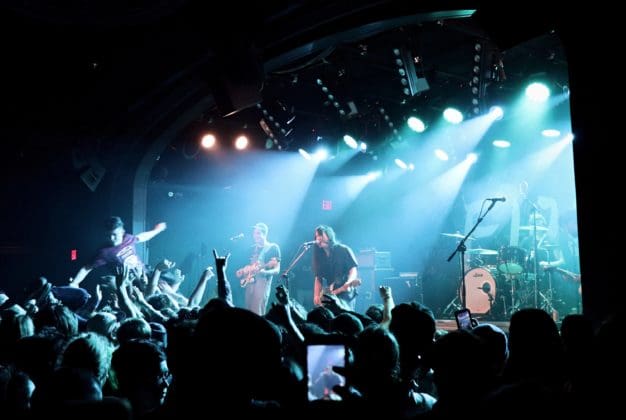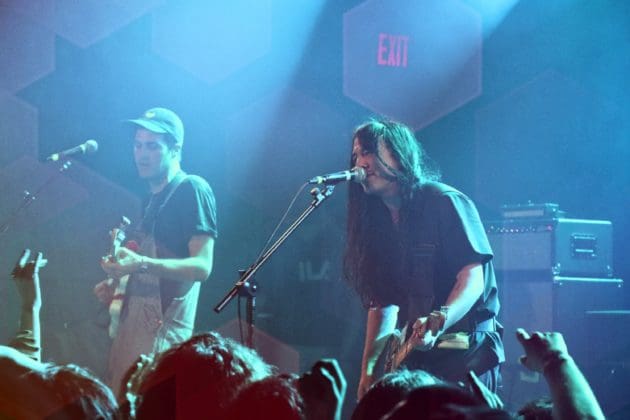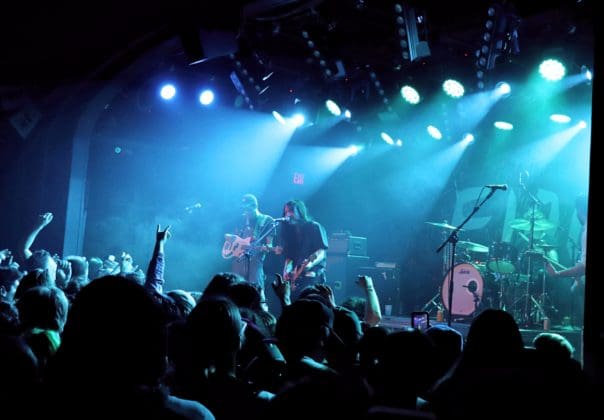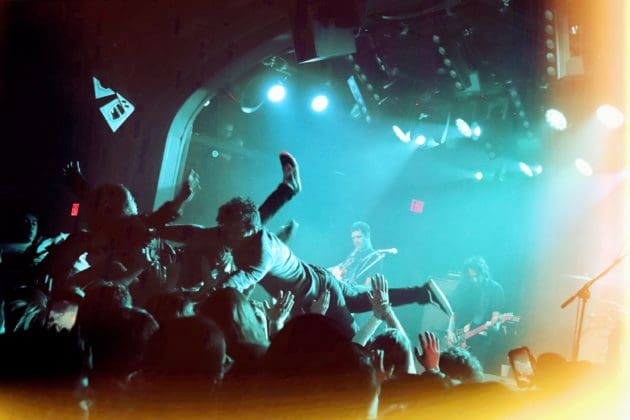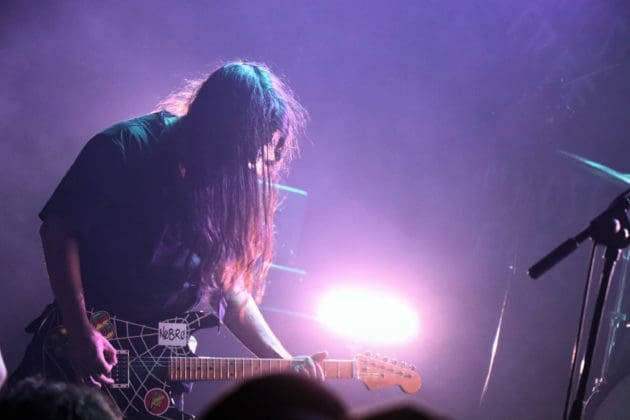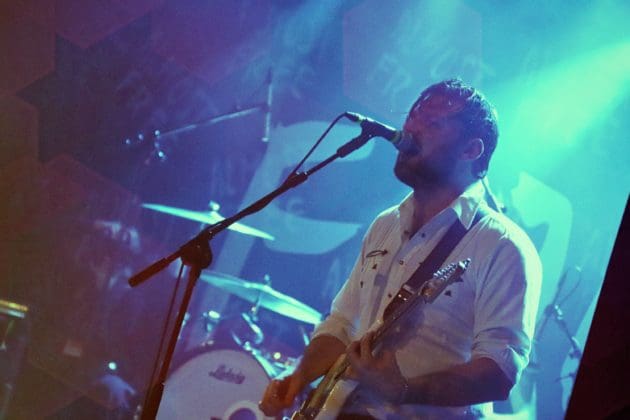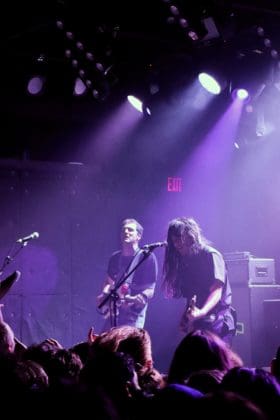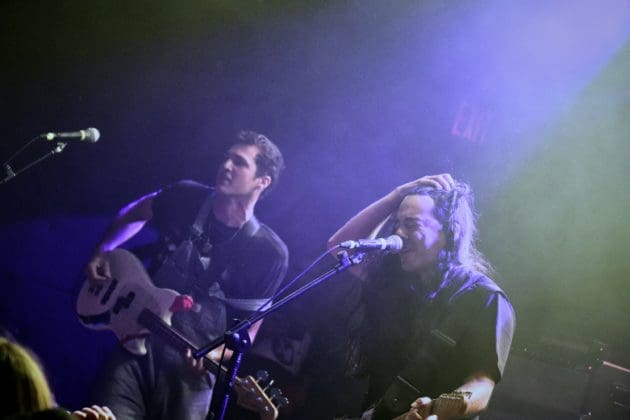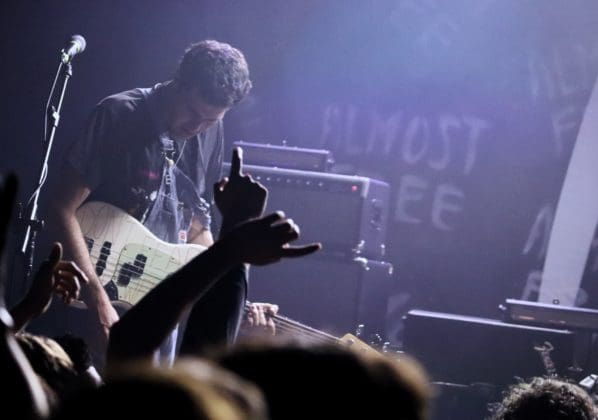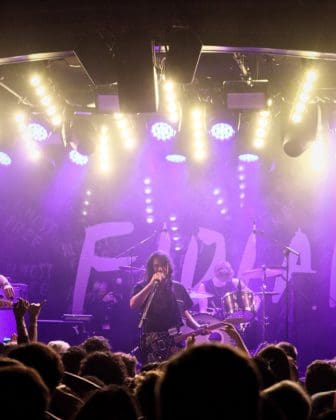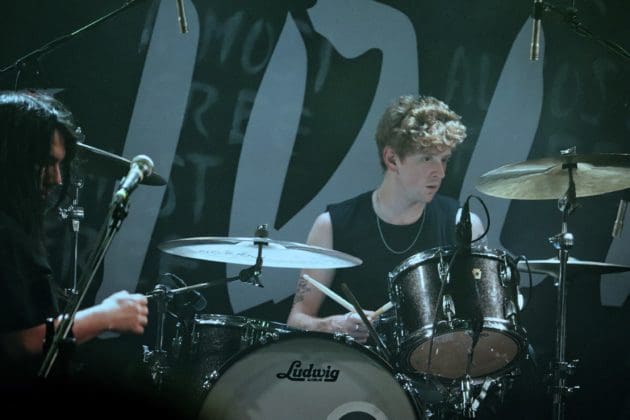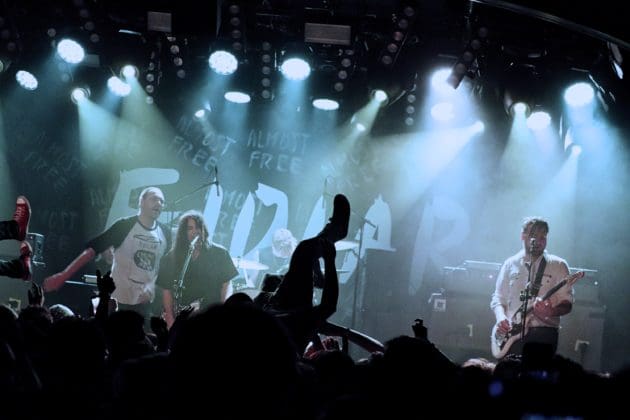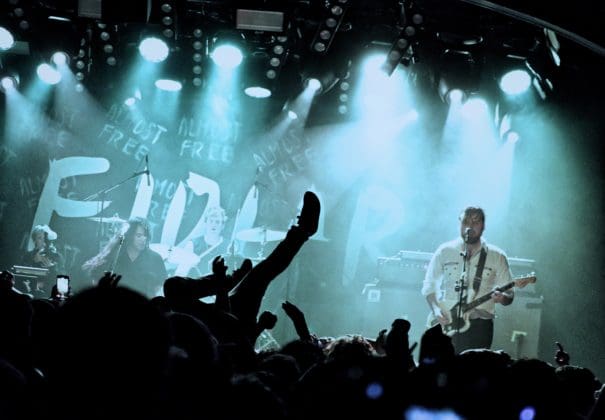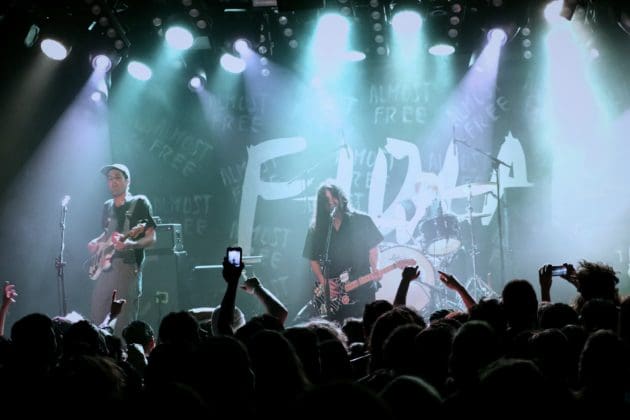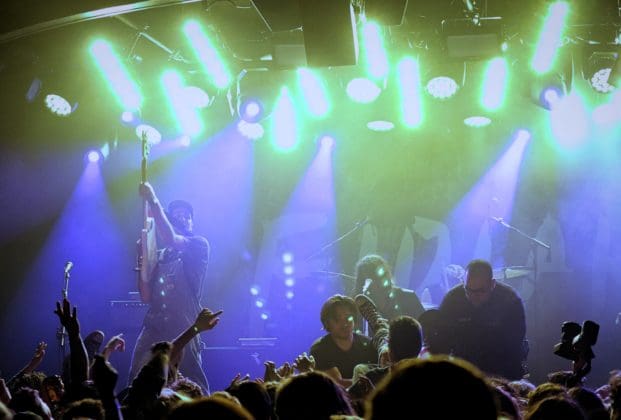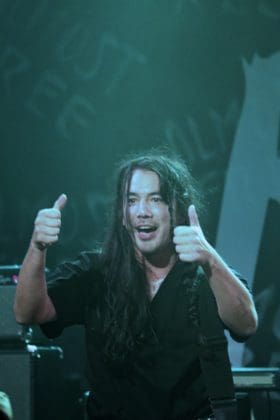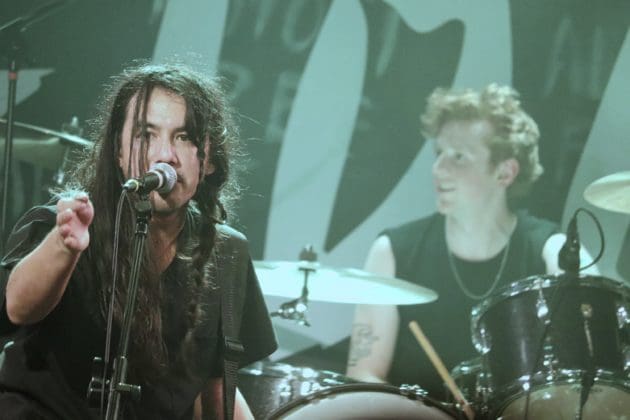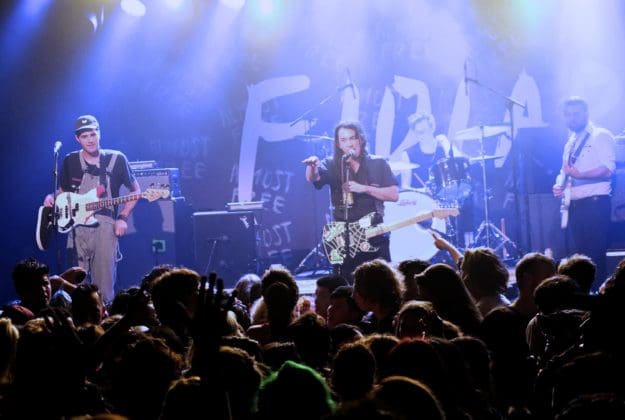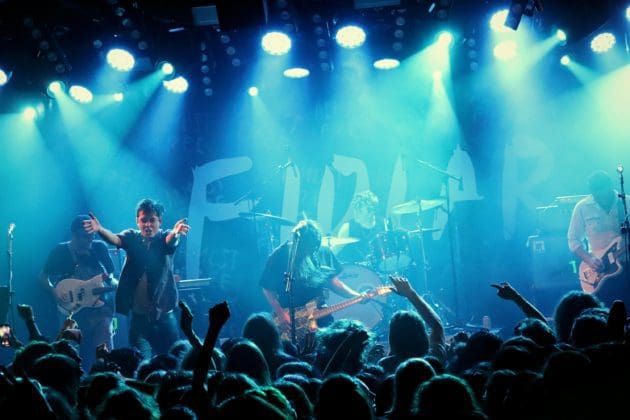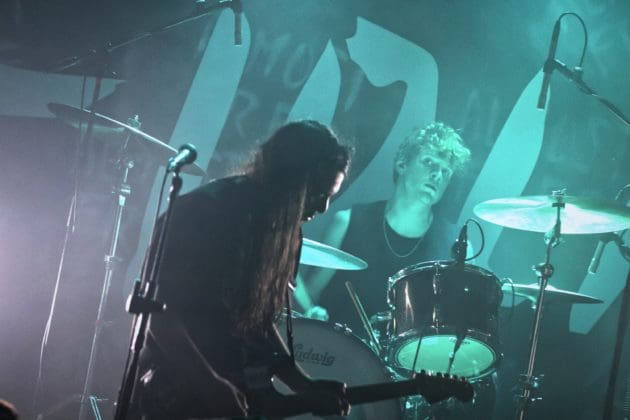Pop Break Live FIDLAR with No Parents and The Side Eyes at The Telegram Ballroom in Los Angeles
One thing’s for certain: punk rock may have been declared dead by Crass in 1978, but punk rock has never died in the city of Los Angeles. On an unusually warm January night, fans packed every inch of the Teragram Ballroom to celebrate punk, the third record release from Fidlar, and two stellar opening acts, the Side Eyes and No Parents.
The Side Eyes are the type of young, up-and-coming act you actively root for – if only because they’re genuinely talented and appear to be having a great time. Female-fronted and ready to kick your ass, the Side Eyes features a set of brothers on guitar and bass and Astrid McDonald – daughter of Go-Go’s guitarist Charlotte Caffey – on vocals. Their songs were whip fast in tempo and delivery, and occasionally sounded a bit metal when guitarist Kevin Devine really let himself go. Even though the Side Eyes were first to perform on a billing with three acts, the audience wasted no time in quickly organizing a mosh pit halfway through their set. With great song titles like “Don’t Talk Me,” “I Don’t Want to Go to School,” and “Cat Call,” it’s clear these early-20-somethings are speaking for their generation and seeking solace in punk rock much like the Orwells – and it’s working.
With the venue already sweaty and tightly filled, No Parents took the stage to a rapturous crowd. Much like the Side Eyes’ set, we had barely made it to No Parents’ second song when a 20-person mosh pit formed. Nearly everyone couldn’t help but sing along to tracks “Two Beers” and “Die, Hippie, Die,” among others, which were all played mostly straight with a little wink-wink-nudge on the side. Lead singer Zoe Reign felt no shame in repping a Korn jersey alongside a DIY tribute to Korn on the band’s kick-drum while keeping the crowd’s energy high all night.
To fully understand the joy, irony, and general hardcore punk attitude of No Parents, I highly recommend stopping by their Space Jam-inspired website – which grants just a hint of what their live shows present. It was impossible to not give into the local SoCal flavor and be reminded of what early 2000’s skater punk used to do for young music fans. It’s not a coincidence that most of the first few rows were full of young people, and the show was better because of it.
When Fidlar finally made it to the stage, I was worried the venue’s capacity had somehow been compromised; it felt like half of Los Angeles was in Teragram Ballroom celebrating the official release of Almost Free. Lead singer Zac Carper quickly had the audience in the palm of his hand with the singalong anthem “Alcohol.” Song after song, and the venue started to feel more and more intimate, more like a DIY garage band show in the best way possible. If you turned away from the stage for even a moment, you would discover the band had seemingly grown in size only to realize that another crowdsurfer had made it to the stage. “40 oz. On Repeat” was such a highlight for the high-energy stage divers that Carper had to pause mid-song and give a little speech on “Stage Diving 101” in order to protect the equipment. He smiled through most of the pep talk, so it felt less like a scolding and more like a head’s up.
The best part of Fidlar’s set, however, came towards the very end. Just before playing “Drone,” Carper split the audience in half and asked that everyone leave an open pocket dead center on the floor. Then he asked that only women fill the space, so that they “could mosh without any men near them, for once.” Excited cheers from the women present marked the decidedly refreshing feminist moment and never relented the remainder of the evening.
By the time we reached the smash hit “West Coast,” it felt like Teragram was floating. Nearly every voice joined the chorus of “ahh, ahh, ahh, ahh’s” and I understood why more the half the crowd had come wearing Fidlar merchandise. The evening’s performance felt like a coming together not of artist and fan, but family and family. Everyone felt connected at that show, and it’s no wonder that punk rock is still alive. It lives on in those fans and in those songs. And after night’s like that, I don’t think it will ever die.

